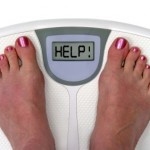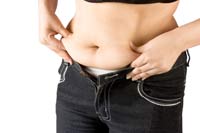Why Diet Soda May NOT Help You Lose Weight!
How many diet drinks do you consume in a given day?
One…Three…TEN?
According to a 2009 American Journal of Clinical Nutrition study, among regular consumers of diet drinks, the average intake is now more than three 8 oz servings a day,
That’s a lot of “fake sugar”. That’s nothing…I used to drink at least 6 cans of Diet Coke per day! I thought I was doing a good thing, instead of sugary drinks, I was drinking ZERO calories. My thinking was “surely that would be better for me”. Well…I may have consumed fewer CALORIES…but it was not better for me or my weight! In fact, diet soda can actually cause you to want to eat more calories. Now that’s not going to help you lose weight!!!
Here’s what I have learned about diet soda:
The REASON or the “WHY” diet soda and artificial sweeteners won’t help you lose weight… it is basic physiology! Our body was BUILT to run on NATURAL fuels. By that I mean…stuff that we can kill (beef, chicken, you get the picture!) or grow (fruits, vegetables, grains). Our body was not built to function properly on stuff made in a laboratory!
When you take the first bite of food, a signal is sent to your brain of what to expect (calories) based on the way the food tastes (sweet, salty, fat, etc)…and then your brain signals the stomach and your body on about how many calories it is probably going to get. Your body then gets ready to maximize the food you are eating (metabolize the food…burn as fuel for energy or store for later) based on how much calories it is used to getting when it has tasted this food before.
When you drink diet soda (it has artificial sweeteners…not natural ones like sugar) you brain TASTES sweet…sends a message throughout your body: ”hold on here we’ve got some sugar coming…get ready to use it”. Well…guess what happens…your body gets disappointed! There is no actual sugar or calories or glucose to burn off and metabolize. Uh-oh!
Your body was ready to use the calories…so now what? In its disappointed state your body sends a message back to the brain…”Where’s the sugar? Where are the calories you told me I was getting? I am ready for sugar…give me sugar!” The result…CRAVINGS!!!!!
Because your body did not get the glucose it was expecting…it will keep bugging you until it does. It will say…”You need that cupcake…you want that cupcake…EAT THAT CUPCAKE!!!” until it gets the calories it was prepared to use! But here is the kicker…over time and drinking more diet soda or consuming more artificial sweeteners…you body loses its ability to tie the “sweet” taste to an expected calorie amount. So when you do eat something sweet…it is so confused…because sweetness no longer means anything and your metabolism treats a cupcake like it did the ZERO calorie diet soda…it doesn’t use it properly and it doesn’t know when to stop asking for more!! So I wonder where those extra calories and glucose go…hmmmm?
What the research says:
In a large retrospective study of 9500 people for over 9 years, they found that eating meat, fried foods and drinking diet soda were the most prominent risk factors for developing metabolic syndrome. That’s not a shock to you I imagine. But, guess what! The people who drank one can of diet soda a day vs. those in the group that drank none…had a 34% higher risk of metabolic syndrome. SERIOUSLY!!!!
In an often referenced Purdue University study, Rats fed yogurt sweetened with saccharin consumed more total daily calories, gained more weight, and had higher blood fat levels than their counterparts who nibbled on yogurt with REAL sugar! That should make you go Hmmmmmmm! The authors stated that “these results suggest that consumption of products containing artificial sweeteners may lead to increased body weight and obesity by interfering with fundamental homeostatic, physiological processes”
According to a 2008 study conducted by The University of Texas Health and Science Center, consuming >21 artificially sweetened beverages /week (vs. none) was associated with an almost DOUBLED risk of being overweight for those 1250 participants who were a normal weight at baseline (7-8 years prior!). And for the 2, 571 participants that were overweight at baseline…it DOUBLED their risk of obesity! BMI’s were 47% greater among the participants who drank artificially sweetened beverages! The authors of this study state “These findings raise the question of whether artificial sweetener use might be FUELING—rather than fighting—our escalating obesity epidemic”
You have probably “heard” that diet soda and artificial sweeteners were BAD for you…but that may have not caused you to stop drinking them. If you are like me…you probably just kept drinking them thinking…”they can’t be THAT bad”!!
Now you know the research…the WHY behind what you have heard when people say Diet soda is BAD and will probably not help you lose weight…maybe the opposite. What are you going to do…keep drinking Diet Soda or stop? Let us know what you think...share your thoughts and comments!
Just in case you want to dig a little deeper! Check out these references:
Michaels, Jillian. Master Your Metabolism (pages 102 and 105)
Lutsey, P., Steffen, L., and Stevens, J. “Dietary Intake and the Development of the Metabolic Syndrome: The Atherosclerosis Risk in Communities Study” Circulation 117, no. 6 (February 12, 2008)
Fowler, SP et al. “Fueling the Obesity Epidemic? Artificially Sweetened Beverage Use and Long-term Weight Gain” Obesity (Silver Spring). 2008 Aug:16(8):1894-900.Epub 2008 Jun 5.
Ludwig, David “Artificially Sweetened Beverages Cause for Concern” JAMA. 2009;302(22):2477-2478.
Swithers, S. and Davidson, T. “A Role for Sweet Taste: Calorie Predictive Relations in Energy Regulation by Rats.” Behavioral Neuroscience 122, no.1 (February 2008)
Mattes RD, Popkin BM. Nonnutritive sweetener consumption in humans: effects on appetite and food intake and their putative mechanisms. Am J Clin Nutr. 2009;89(1):1-14
References Links:
http://www.ajcn.org/cgi/content/abstract/89/1/1
http://circ.ahajournals.org/cgi/reprint/117/6/754
http://www.ncbi.nlm.nih.gov/pubmed/18298259
http://www.nature.com/oby/journal/v16/n8/pdf/oby2008284a.pdf
-
After I Left My Boyfriend
A couple of years ago if you came and asked me what are the best fat b
-
Physical Exercise Is The Secret To Getting Rid Of Obesity
According to a recent European study, an hour of moderate to vigorous
-
How To Lose Twenty Pounds In A Month
Usually for somebody to lose 20 pounds in a month, you need to set rea
-
Diminish Bloating Caused by Your Monthly Cycle
Menstruation is a normal and routine part of a womans life.Yet, a
-
Selecting the Right Diet Pills for Weight Loss
More and more people are turning to the diet pill for their weight
-
How to Burn Off 24 Holiday Foods
V
- DON'T MISS
- Diet plan Strategy – What fat burning foods need to we eat to realize loss of weight quick
- Heart Association Diet Book Offers Recipe for Success
- Being True To One's Nature Leads To Perfect Health and Balance
- Calotren ?Not a Miracle Medicine!
- How you can Prevent Calcium Depletion although on a Diet plan?
- Weight Lifting Programs: Why They Should be Incorporated Into Your Fitness Goals
- Stop Dieting - Keep A Fitness Journal Instead! Six Essential Areas You Should Be Tracking Now.
- Guidelines To Burn Fat Quickly
- Why Trying To Get The Perfect Body Is A Waste Of Your Life
- The Miracle Of A Cheat Meal




